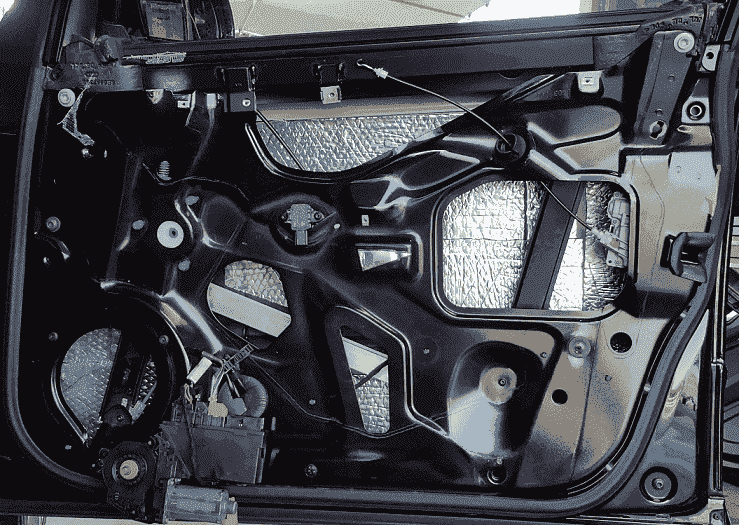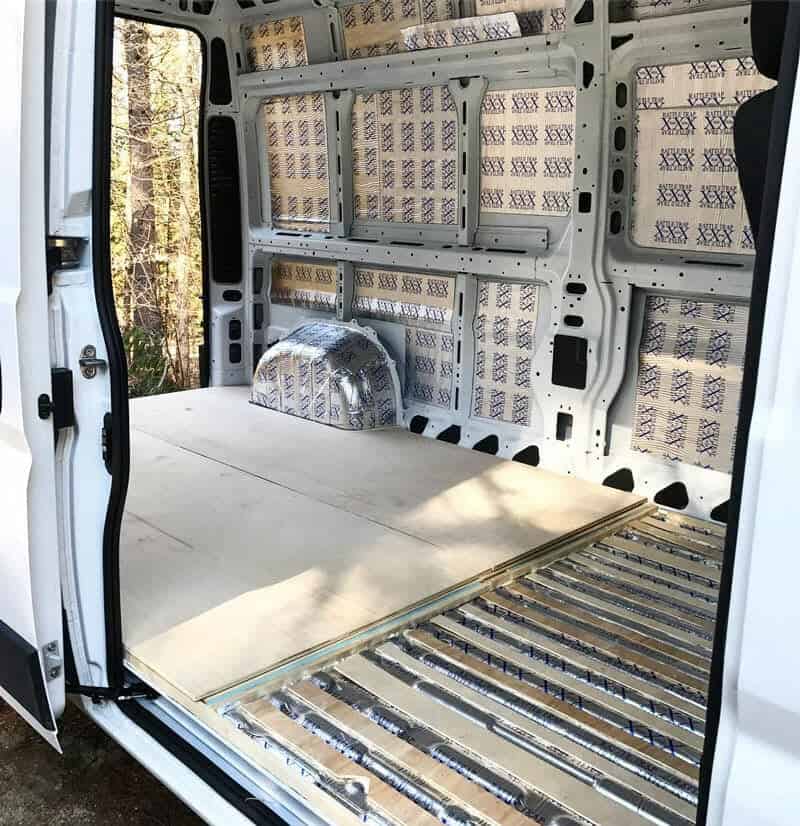Sound Deadening
Professional Car Sound Deadening Installation
No one wants the noise of the outside world leaking into their cars. For many, a car is an extension of their home, so you’ll want to keep the inside as quiet as possible. However, unless you are riding around in an ultra-luxury car, you may notice that your car’s sound insulation is far from perfect. If you want a peaceful interior, or to hear your upgraded car speakers better, let ProCarSound&Security upgrade your car’s sound deadening.

Benefits Of Car Sound Deadening
Car soundproofing can benefit you on your day-to-day drive through Boston. If you are wondering why you would want to apply extra sound deadening to your vehicle, we have compiled a short list of reasons below.
- Reduced Road Noise. The most obvious benefit is that increasing the sound deadening in your car will block out more of the road noise on your drive. The constant drone of road noise is annoying and can contribute to feeling fatigued. Additionally, if you often travel with other passengers or make frequent hands-free phone calls, a quieter interior will allow for conversations to take place without the need to raise your voice.
- Privacy. Many might not be aware that their hands-free phone calls are relatively loud and can be heard by anyone passing by your car. With increased car sound deadening, chances will be less likely that any curious onlookers will hear your private phone calls.
- Improved Sound Quality. Since good car sound deadening will seal up your interior, it helps improve your sound quality in two ways. First, it keeps outside noise from entering the cabin and interfering. Secondly, it keeps sound coming from your speakers inside the car, giving you the full depth of your music.
Sound Deadening Materials For Cars
When looking for car sound-deadening material, you will find a few options regarding the material used. Each of the following materials has advantages and are often used together while performing complete car insulation.
Butyl
Rubber
When anyone talks about placing sound deadening in their car, they will typically refer to deadening made from butyl rubber. This rubber comes in sheets and is cut to size to fit onto the inside of your vehicle’s metal panels. It will typically be coupled with an aluminum backing and takes effort to adhere to panels that aren’t straight.
You may also come across sound-deadening material made up of foam. These will work similarly to butyl but are typically easier to handle and less stiff.
This material is an excellent general-purpose choice for sound deadening. It can handle both structural and airborne noises. Being able to dampen any impacts to your body panels and the sound of air hitting your vehicle. With strategic placement, this sound-deadening material will help block out noise while keeping your sound system’s audio enclosed in your cabin.
Foam
Spray
Spray car soundproofing is less common than the other two materials. Instead of coming in sheets, the spray will be applied straight out of the can. The resulting sound deadening from the sprays is noticeably worse than what can be produced by either butyl or foam sound deadeners. However, they are helpful because they can be applied to hard-to-reach areas or awkwardly shaped panels that prevent a butyl or foam pad from being used.
Each material has its purpose and will excel best if installed in a particular vehicle part. Coming up with the correct car sound-deadening layout can be a hassle, so you can trust the experts at ProCarSoundSecurity to come up with the best installation plan for your car’s insulation upgrade.
Choosing Car Sound Deadening Material
Sound deadening is a relatively simple concept, so there is little room for an easy-to-see variety between products. While each company may have its proprietary compositions, they won’t just hand you their secret formula. So instead, we will focus on the factors that we can see.
We have just discussed the differences in the different materials used when sound insulating your car. The material will be the most crucial factor when choosing which sound deadener you intend to go with, but there are a few other specifications that you should be aware of.
Heat Resistance
One of the main reasons owners may opt for aftermarket sound deadening is because the factory sounded deadening has deteriorated, if it was even there in the first place. A big reason for this degradation is due to heat. It’s no secret that your car not only generates a lot of heat but captures a lot of it when left in the sun.
As such, you must check to make sure whatever product you choose can tolerate heat. For instance, if you are selecting an asphalt-based material, be aware that it might not fare well in hot climates and won’t stand up to the heat as well as butyl will.

Thickness
Car sound-deadening sheets will come in different thicknesses. The thickness is denoted in mils, equivalent to thousandths of an inch. Typically you can expect better results from thicker materials. This will come with the caveat that they will be harder to handle when installing. However, if you choose ProCarSoundSecurity, you won’t have to worry about the extra work during installation.
However, sometimes a particular tight location will necessitate the use of thinner material for it to be installed.
Soundproof Your Car Today
For anyone looking to soundproof their car in Boston, you can trust ProCarSound&Security. Proper sound insulation requires a lot of forethought and finesse. So it’s worth letting the pros develop and execute the most effective solution for your needs. If you have recently upgraded to a new Apple CarPlay radio or subwoofer, don’t pass over the opportunity to improve your vehicle’s sound deadening. After a sound-deadening installation, you will be amazed at your car’s stereo system quality increase.
Please get in touch with us if you have any questions or would like to schedule a soundproofing installation.







